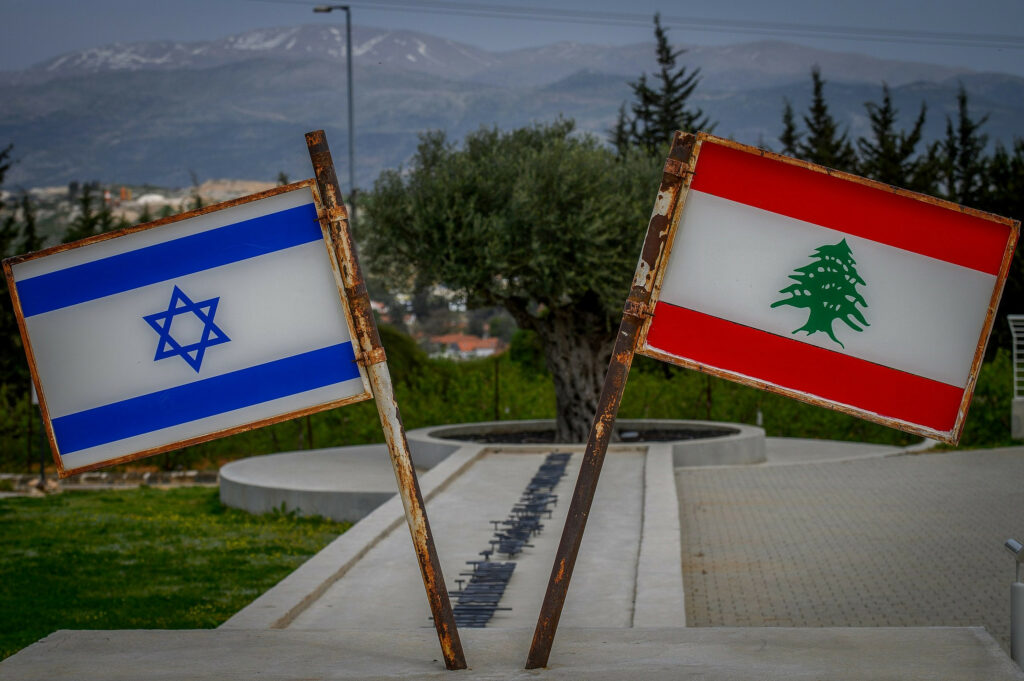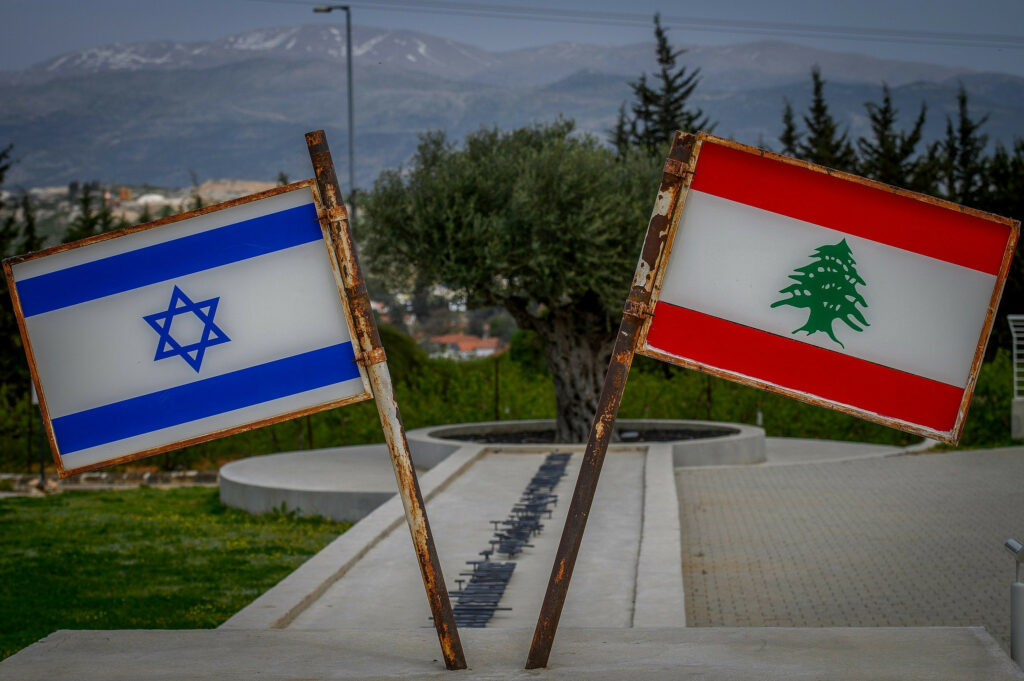
Lebanese Christians who allied with Israel are grateful, but remain lonely and scared
A Nahariya cafe owner connected JNS with Fred—not his real name—late last year. A Christian who fled Lebanon to Israel after years of civil war, he spoke with JNS in French (Lebanon was a French colony) and insisted that there be no recording of the interview and no photographs taken, even checking several times to make sure there were no hidden recording devices while the interview was taking place.
This close to Lebanon and with family on the other side of the Lebanese border, Fred, who is in his early 70s, had good reason to be cautious, even paranoid.
He was in his 20s when the Lebanese Civil War broke out in 1975 and he eventually joined the South Lebanon Army. The war would last until 1990.
“We initially felt threatened by the Palestinians and later the Shias, who would create Hezbollah,” he told JNS.
After the war, Israel gave asylum to the Phalangists, a Christian—largely Maronite Catholic—group that had supported Israel during the Jewish state’s years-long involvement in Lebanon.
Israel and Lebanon have remained officially at war since 1948 but Israel allied with and trained Lebanese militias, most composed of Maronite Christians, both during and for at least a decade following the civil war.
A variety of factors were responsible for this alliance, says Oren Barak, Middle East studies chair and professor of political science at the Hebrew University of Jerusalem.
By the 1970s, Lebanese Christians had lost their majority status in Lebanon, so they sought foreign allies such as Syria, Israel and the United States, according to Barak. On the Israeli side, then-Prime Minister Menachem Begin and others saw Lebanese Christians as a fellow persecuted group, as well as a partner with a shared enemy: Palestinian terror groups like the PLO, then based in Lebanon.
“The whole alliance can be likened to a marriage of convenience of sorts,” Barak told JNS.
At first, Palestinian refugees in Lebanon used refugee camps as bases from which to attack Israel. The result was a complicated asymmetric war involving Israel, Syria and other powers, in which Lebanon’s Christian ruling elite found its power threatened.
Fred told JNS that the Israeli government housed him after the war. “I’m grateful to Israel for letting me live here and giving me citizenship,” he said.
It has been difficult for him to maintain contact with and send money to his brother in Lebanon. In the past, he was forced to wire money to his brother via relatives in Canada and Abu Dhabi.
“The Lebanese economy has collapsed. They can’t even afford the basics—fuel and electricity,” he said.
“Many Lebanese Christians long to see the Holy Land, where Jesus walked,” he added. “I likewise long to see my nieces and nephews more often just across the border.”
Fred told JNS that, in some families, one sibling fought in the Lebanese army while another was part of a pro-Syrian militia or pro-Israel.
“It was just confusion,” he said. “I am safe in Israel but can’t risk any harm coming to my relatives at home.” (Thus the inspections for recording devices.)

‘A stranger in a foreign land’
Fadi, in his 50s and who also asked for a pseudonym, was a defector from the Lebanese army to the Lebanese Forces, a Christian militia. He told JNS that he fought alongside Israelis in the 1980s towards the end of the civil war. He told his parents that he had secured a job in Dubai and concealed the fact that Israelis were training him. After the war, he moved from Israel to Canada.
“Whether I had remained in Israel or moved to the Americas, I am still a stranger in a foreign land,” he said. “Lebanon is a very sectarian society. Many of us got dragged into the conflict only because of whichever religion we were born into.”
Fadi told JNS that he has no regrets about his defection, despite his militia having been forcibly disbanded.
“Our homeland was under attack, and we only wanted to keep it safe,” he said. “Can you blame us?”
Until 2000, the IDF maintained a presence in southern Lebanon, known as the Security Belt. As other militias crumbled, the South Lebanon Army maintained control over the unrecognized state, acting as a buffer against Hezbollah.
“Even now, I can go to Israel but not my own country of birth: Lebanon,” said Fadi, who has visited relatives in Cyprus, the closest country not at war with Israel. His family subsequently moved to France.
“Sadly, even to this day, Lebanon never fixed the underlying issues that caused the war to break out in the first place,” he said.
After then-Prime Minister Ehud Barak withdrew Israeli forces in 2000, many Phalangists fled to Israel, fearing for their lives. Some of those who stayed were pardoned; some were hanged or imprisoned. Today, only Hezbollah has an official armed wing in Lebanon. Other entities, such as the Lebanese Forces, have a political wing but no official armed presence.
Oren Barak told JNS that the main reason the alliance crumbled was due to “imprudence on the part of both actors, who had unachievable goals.”
“The failure to comprehend and compromise with the various other religious and sectarian groups and factions in Lebanon is probably the biggest mistake they made,” he said. “There have been other alliances between Israel and various groups and state actors in the Middle East in recent history, but the Israeli-Lebanese Christian alliance certainly stands out in terms of its depth and impact.”
The post Lebanese Christians who allied with Israel are grateful, but remain lonely and scared appeared first on Israel365 News.
Israel in the News